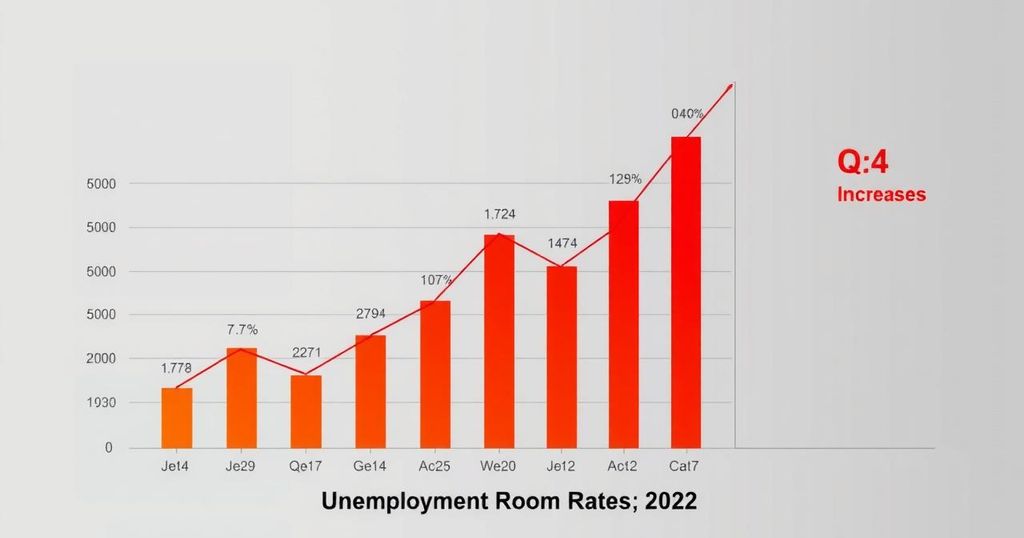Mozambique’s unemployment rose by 1.8% in Q4 2024, reaching 190,558 total unemployed. The report noted regional unemployment disparities, with the central region most affected. Employment decreased by 13.7%, with a 2.1% rise in foreign labor hiring and a concerning increase in illegal worker suspensions.
In the fourth quarter of 2024, Mozambique experienced a 1.8% increase in unemployment, totaling 190,558 unemployed individuals compared to 187,149 in the third quarter, as reported by the government. The Labour Market Information Bulletin revealed that 91,215 of those registered at employment centers were seeking their first job, while the remainder were looking for new job opportunities.
Geographically, the unemployment rate varied, with the central region accounting for 36.1% of unemployed individuals, the southern region at 33.4%, and the northern region with the least at 30.5%. Gender distribution indicated that the southern region had 38.1% female job seekers, followed by 36.9% in the central region and 25.0% in the northern region. Nearly half of the registered unemployed, or 47.9%, were first-time job seekers, with Nampula province leading at 22.9%.
Additionally, the Mozambican government indicated a decline of 13.7% in employment in the last quarter, with only 103,834 new jobs created, a significant drop from 120,252 in the previous quarter. The distribution of newly registered jobs showed the central region held the highest share at 43.6%, while Nampula, Sofala, and Gaza provinces exhibited notable job percentages.
The report highlighted that 33.3% of the registered jobs were allocated to women. Furthermore, there was a 2.1% increase in the hiring of foreign labor, totaling 5,426 foreign workers, predominantly in wholesale and retail sectors. The document also noted an increase in the suspension of illegal foreign workers, rising by 29.4% in the final quarter, particularly in Maputo city and Sofala, with multiple sectors implicated.
In summary, Mozambique’s labour market faced challenges in the fourth quarter of 2024, marked by a rise in unemployment and a notable decline in job creation. The report highlighted concerning disparities in unemployment rates across regions and genders, alongside an increase in foreign labor and suspensions of illegal workers, indicating ongoing complexities within the nation’s employment landscape.
Original Source: clubofmozambique.com




